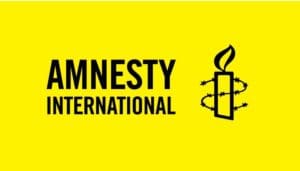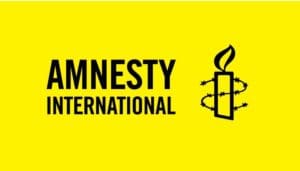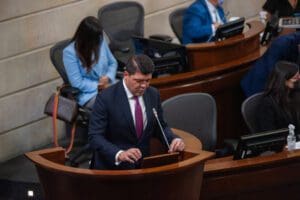Filter by
Showing 997-1008 of 11244 Results
Urgent Action
Urgent Action Update: JAILED ACTIVIST TRANSFERRED TO MOSCOW (Russian Federation: UA 114.21)
On November 17, 2021, a court upheld on appeal the pretrial detention of activist Lilia Chanysheva, and she was transferred out of her hometown of Ufa on November 21, 2021.…
Urgent Action
Urgent Action: REFUGEE CHILDREN AT RISK (Peru: 119.21)
Thousands of children and adolescents asylum seekers in Peru face increased risks because authorities are denying them humanitarian immigration status, a type of temporary legal residency which they are entitled…
Page
GIVEBRIDGE & AIUSA FAQ
You may see Amnesty International fundraisers in your neighborhood to talk to you about becoming a monthly supporter. Please consider joining us today – Your support will help continue the…

Press Release
Biden Must Deliver COVID-19 WTO TRIPS Waiver at WTO Ministerial, Say Members of Congress, Health, Labor, Human Rights and Faith Leaders at Press Conference as Dozens of Civil Society Groups Deliver Three Million Petitions to Biden Administration
Today members of Congress joined health, labor, faith and development leaders in a press conference urging President Joe Biden to deliver on his pledge to remove intellectual property barriers that…

Press Release
Afghanistan Must Have Access to Funds to Avoid Humanitarian Disaster
The international community must urgently ease existing financial restrictions on Afghanistan that are blocking the provision of healthcare, food and other essential services, and expedite delivery of scaled-up humanitarian assistance…

Update
Biden Administration’s U.S.-Egypt Strategic Dialogue Was a Human Rights Failure – Joint Statement from International, Egyptian Human Rights Groups
In a joint statement released today signed by 12 international and Egyptian human rights organizations, Amnesty International USA and other signatories criticized the Biden Administration's failure in its recent U.S.-Egypt…

Urgent Action
Urgent Action: OPPOSITION ACTIVIST AT RISK OF TORTURE (Turkmenistan: UA 163.21)
Azat Isakov, a Turkmen activist with the opposition movement Turkmenia, Unite! went missing in Russia on October 20, 2021, and reportedly reappeared later in Turkmenistan. According to a statement by…
Urgent Action
Urgent Action Update: UNJUSTLY DETAINED STUDENTS HARSHLY BEATEN (Iran: UA 76.20)
Iranian university students Ali Younesi and Amirhossein Moradi, arbitrarily detained without trial in section 209 of Tehran’s Evin prison since April 10, 2020, are at risk of being convicted in…
Urgent Action
Urgent Action Update: COVID-19 JOURNALIST AT RISK OF DYING IN PRISON (China: UA 170.20)
Citizen journalist Zhang Zhan, who has been on partial hunger strike in protest of her incarceration, is at grave risk of death and her family do not expect her to…
Press Release
Only a Robust and Coordinated State Response Will Resolve the Situation of Grave Risk Faced by Human Rights Defenders in Colombia
Colombia has failed to comply with its international obligation to guarantee a safe and enabling space for the defense of human rights in the country, but today it has the…

Update
Vote Recommendation: Amnesty International USA Recommends a YES Vote on the Build Back Better Act and Supports Funding for Community Violence Intervention Programs
On November 18, 2021, Amnesty International USA wrote to members of the House of Representatives to urge them to vote YES on H.R. 5376, Build Back Better Act. The bill…

Urgent Action
Urgent Action Update: DETAINED RIGHTS DEFENDER DENIED MEDICAL CARE (Belarus: 148.20)
Marfa Rabkova is a Belarusian human rights defender and the coordinator of the volunteer network of the NGO Viasna. She has been in pretrial detention since September 2020 and risks…
